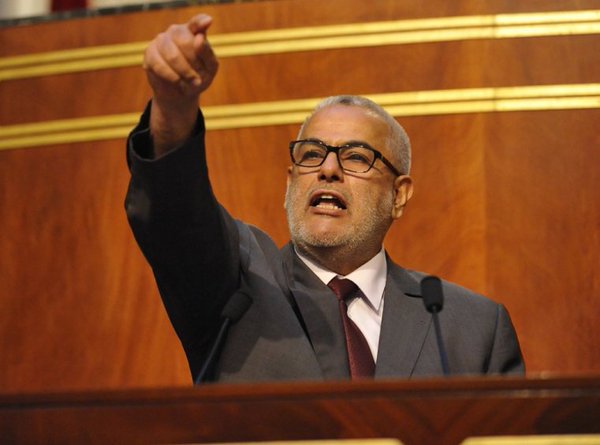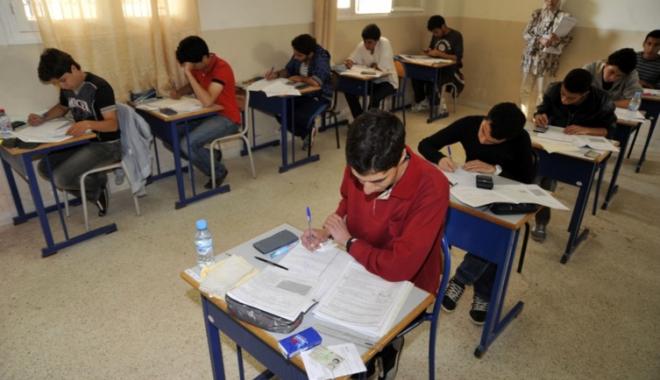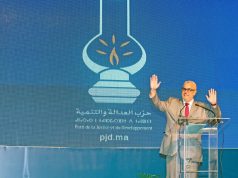At the end of last year, a heated debate has sparked among Moroccans after Noureddine Ayouch, president of the Zakoura Education Foundation, has proposed the use of a codified Darija (Moroccan Arabic) as the teaching language in primary school.
Since then, said idea seemed to have been shot dead until King Mohammed VI has named Mr Ayouch a member of the Supreme Council for Education, among the 20 others that the monarch chooses.
Noureddine Ayouch has a degree in sociology from the University of Paris and is the founder of Shem’s Publicité, one of Morocco’s first advertisement agencies. He has also founded other agencies specialized in different fields, such as design and communication.
Such a polyvalent profile that combines the know-how in fields with intrinsic ties to language use, as well as valuable experience in education through the Zakoura Education Foundation among others, can make of Mr Ayouch a legitimate actor in tackling the educational disaster that Morocco seems to be living for decades.
It is no mystery that the Moroccan educational system has failed the people and is continuously unable to provide adequate profiles for the Moroccan job market; according to the UN’s 2014 human development index, our education index is 0.254, which is lower than the war ravaged countries of Syria (0.379) and Iraq (0.328).
Also, with the swift change of languages from Darija to Arabic when going from home to primary school, and again from Arabic to English, French or Spanish in higher education, our schools seem to be producing more and more language orphans.
To this regard, Mr Ayouch has two major proposals for the educational situation in Morocco: first is the use of Darija, Moroccans’ mother tongue, as a starter for children’s education. The second is the use of English to teach scientific topics starting high school.
If we are to analyse these proposals we have to go first to authorities in the educational matter. According to one of UNESCO’s publications on education: “Years of research have shown that children who begin their education in their mother tongue make a better start, and continue to perform better, than those for whom school starts with a new language. The same applies to adults seeking to become literate. This conclusion is now widely implemented, although we still hear of governments that insist on imposing a foreign language of instruction on young children, either in a mistaken attempt at modernity or to express the pre-eminence of a social dominant group.”
Based on this statement, which is the result of years of research and hard work, we can easily deduce the importance of teaching in the mother tongue –the language you speak at home and the street before going to school. Some try to convince us that this language is Arabic, or in some cases Amazigh, which is blatantly not true; just walk down the street of any city in Morocco and listen. Of course, I am in no way discrediting the aforementioned languages’ importance in Morocco either from a historical, social or cultural perspective; teaching these languages will be easier if approached from a different pedagogical angle that introduces them, as well as foreign languages, using Darija.
For what concerns the use of English in scientific topics, I believe the proposal supports itself as English is the lingua franca for science and the internet.
In my opinion, Mr Ayouch’s proposals are of a sound nature and they come at a time where we really need to reform our educational system as a whole. It would have been great to see political parties, the civil society and other organisms gathered to debate this matter, provide constructive criticism and test the validity of Mr Ayouch’s proposal.
However, the man’s ideas were shot down due to ideological motives and with no use of reason whatsoever. Mr Benkirane chose to personally attack Mr. Ayouch instead of studying his proposal and the important figures it combines by calling him a “business man who continuously tries to find someone to sell this country to” and telling him “if you want to do business … then open a shop”. This can be verified in May 15th 2014 articles of Alyaoum24, Hespress and le360 among others who have reported these statements.
The irony in this is that these statements were made by Benkirane in Darija, a language he commonly uses for addressing the public. Since when have we decided that a language can only be spoken and not written?
Mr Benkirane’s motive for this personal attack, which can also be verified in the aforementioned sources, is his belief in the sanctity of the Arabic language. Who and when and why would anyone make a language sacred? If Mr Benkirane were to investigate even the slightest bit, he would know that the Aramaic language is ancestral to Arabic, same as Arabic is ancestral to Darija or Masri (Egyptian Arabic).
Just like the experience of Masri in Egypt, codifying Darija first before talking about its introduction in the education system, can prove itself very efficient in media, art and culture.
Finally and most importantly, codifying our language –Darija- may put an end to the political and social supremacy of some groups, whether they are lobbying for Arabic or French.
Taha Slaoui






